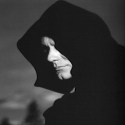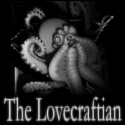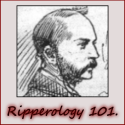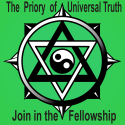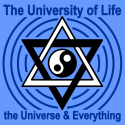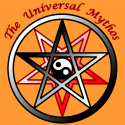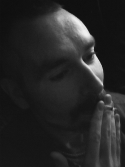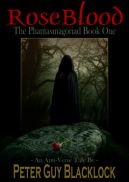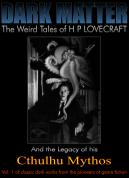 Universal Truth #3. Death is Inevitable … Read it and Weep, People!
Universal Truth #3. Death is Inevitable … Read it and Weep, People!
Death WILL call on us all… sooner or later, somehow or other – we all will die.
The inevitability of death is a truth that has haunted us, the living, since time immemorial. It may well be a sad truth, a dark truth, an unpalatable truth and yes, a brutal and truly terrifying truth – but it is still a truth nonetheless. There is no escaping the fact that death will inevitably follow life and that life means death, life is death. We may try and do all we can to extend our lifespans, to put off that inevitable death as much as possible, but in the end we – even the most healthy and long-lived among us – are all going to die.

In the game of life we will all be dealt the Death card eventually.
Death is all around us, ever-present and always an imminent possibility. Our hearts will still and our brains suffocate, our bodies will rot and our minds be snuffed out. Bones will turn to dust and our ashes return to earth. All our relatives will die, all our friends will die and all our foes will too. Everyone will die, every one you have ever known and every one you haven’t, past, present and future – they all die… WE all die. It is the surest end that awaits everyone – it is the great equaliser, rich and poor, the wise and the foolish, lovers and haters, they all yield to death just the same.
“And they die an equal death — the idler and the man of mighty deeds.”
Homer’s Iliad, c, 750 BCE, reiterates that all are equal before death.
“There is no medicine to be found for a life which has fled.”
So saith the ancient Greek lyric poet, Ibycus (c. 6th century BCE)… and who are we to argue, it was true then and it is true now.
“For he knoweth our frame; he remembereth that we are dust. As for man, his days are as grass: as a flower of the field, so he flourisheth. For the wind passeth over it, and it is gone; and the place thereof shall know it no more.”
From the Biblical Book of Psalms (c. 5th century BCE), King James Version (103:14-16).
“Death is as sure for that which is born, as birth is for that which is dead. Therefore grieve not for what is inevitable.”
The Hindu Sage Vyasa – from the Bhagavad Gita (c. 5th – 2nd century BCE). Note that Hindu’s believe in reincarnation, hence the as birth is for that which is dead.
“Death is nothing to us, since when we are, death has not come, and when death has come, we are not.”
The ancient Greek philosopher Epicurus (341 BCE – 270 BCE).
“What new thing then is it for a man to die, whose whole life is nothing else but a journey to death?”
So said Seneca the Younger (c. 4 BCE – 65 CE), a Roman philosopher, statesman, dramatist, and humorist.
“Death levels all things.”
The Alexandrian poet, Claudius Claudianus (c. 370 CE – 404 CE).

Omar Khayyám
“Strange—is it not?—that of the myriads who Before us passed the door of Darkness through, Not one returns to tell us of the road Which to discover we must travel too.”
From the Rubaiyat of Omar Khayyám (1120 CE) by the Persian mathematician, astronomer, and writer Omar Khayyám.
“Death, as the Psalmist saith, is certain to all; all shall die.”
William Shakespeare (1564 – 1616 CE). That’s right – every last one of us – we, and every living thing, all shall die.
“And what is so intricate, so entangling as death? Who ever got out of a winding sheet?”
English poet, John Donne (1572 – 1631 CE). Nothing, John, nothing. Oh, and I’m pretty sure if someone did get out of a winding sheet – they weren’t dead.
“We die only once, and for such a long time!”
Italian actor and writer, Molière (1622 – 1673 CE). We can only hope that the dying is short, for it is most certain that the death itself will be a very protracted affair indeed.
“When the game is over, the king and the pawn go into the same box.”
Italian Proverb. We may not all be born equal under the sun, but we’ll certainly all die equal – as we take that dark, moonlit path into the unknown realm of the dead.
“To every man upon this earth Death cometh soon or late, And how can man die better Than facing fearful odds, For the ashes of his fathers And the temples of his gods?”
From the Lays of Ancient Rome (Horatius, XXVII) by Thomas Babington Macaulay (1800 – 1859 CE).
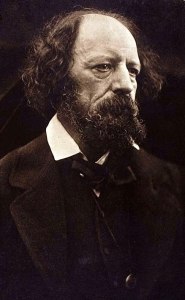
Alfred Lord Tennyson
“Twilight and evening bell, And after that the dark.”
The British Poet Laureate, Alfred Lord Tennyson (1809 – 1892 CE), waxing lyrical.
“For life is sweet, but after life is death. This is the end of every man’s desire.”
English poet, playwright, novelist, and critic, Algernon Charles Swinburne (1837 – 1909 CE).
“For life and death are one, even as the river and the sea are one.”
Lebanese poet Khalil Gibran (1883 – 1931 CE).
“If the mortality rate seems high we must realize that Nature is a ruthless teacher. There are no second chances in Mother Nature’s Survival Course.”
American writer and artist, William S. Burroughs (1914 – 1997 CE), keeping it real!
“Death is that Tomorrow for which all our lives are spent waiting! Man is constantly building the Image – it is an Edifice for the entombment of bones! Best to Realize the temporal nature of things and simply Do and Die!”
American musician, Irvin Kauffman (b. 1936 CE).
You start as nothing but a fleeting gleam – glimpsed betwixt your parents… then you’re born, you live and die all to soon… only to be ranked among a lost legion of forgotten dead for the rest of eternity.
Well, at least that’s something to look forward to.

William Shakespeare
But, what is it – to be dead? Is it a sweet repose or a cold oblivion? Is it painful to be dead? Is there a form of life after death? Does a spark of self continue, a soul or spirit? Eternal questions that we will never know the answer to, can never know… except, perhaps, at the point of our own demise. No one has ever come back from the dead to tell us what it is like. To be sure, you can be saved from dying and be “brought back” to life, for you are only near death, but you can’t be saved from death itself… there is no coming back from that.
Acceptance of one’s own mortality is the first step to Wisdom… forcing you to “Know Thyself” and to be all too aware of your own limitations. You must accept the inevitable for the inevitable will accept you whether you accept it or not.
It is the first lesson at the School of Hard Knocks and it is the foundation stone on which the University of Life, the Universe & Everything is built.
Let us end this Universal Truth with a little couplet of quotes, the first is anonymous (slightly tweaked by me) and the second is another from the esteemed playwright Shakespeare…
“Xerxes the great did die; And so, alas, must you and I.”
So…
“Let’s do it after the high Roman fashion, And make death proud to take us.”
Check out the Universal Truths #1: Moderation is the Key HERE and #2: Knowledge is Power HERE. The fourth Universal Truth, Time is Inexorable – will follow in due course.
——————–
Enter the Priory of Universal Truth
Copyright © 2017 Harbinger451 – All Rights Reserved
